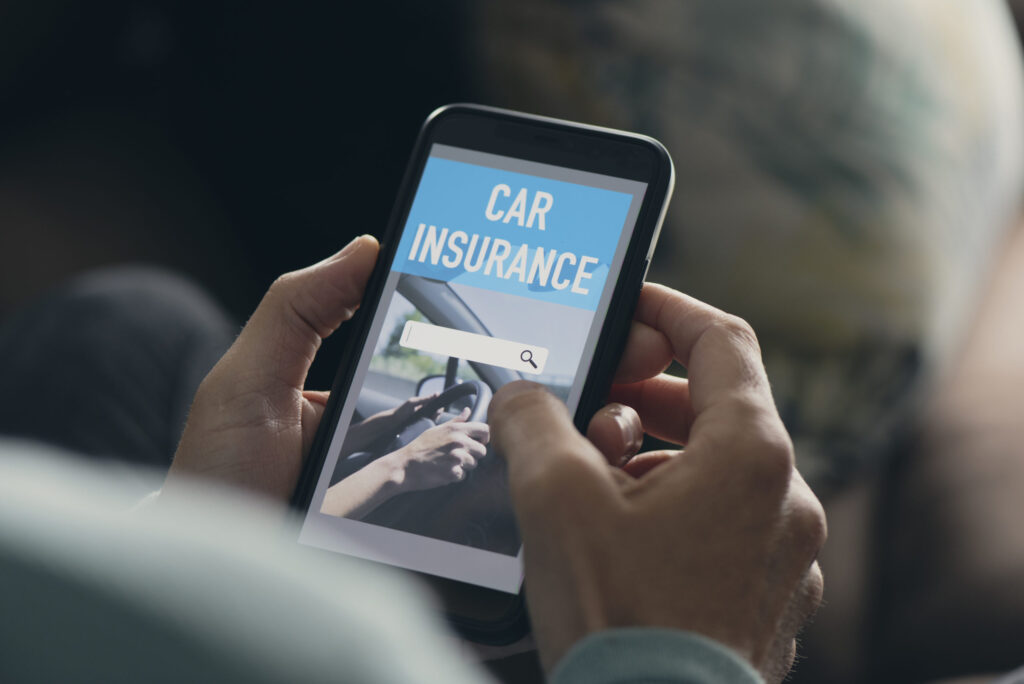Getting car insurance quotes can feel like trying to find a needle in a haystack, except the haystack is on fire, and you really need that needle to drive legally. But don’t worry! By the time you’re done reading this, you’ll be a car insurance ninja, slicing through the jargon and finding the perfect policy without breaking a sweat.
So buckle up, and let’s take this ride together. We’ll cover everything from what car insurance quotes are, how to get them, what factors affect your rates, and some insider tips on getting the best deals. Plus, I’ll throw in some external links in every paragraph because Google loves that stuff!

1. What Are Car Insurance Quotes? (And Why Do You Need Them?)
Car insurance quotes are estimates of how much an insurance company will charge you for a policy. Think of them as the price tags on different brands of cereal at the supermarket, except instead of choosing between Frosted Flakes and Cheerios, you’re picking between companies that will have your back if you ever find yourself in a fender bender.
Getting multiple quotes is crucial because, like cereal, not all insurance policies are created equal. Some might offer better coverage, while others might have a lower price. The only way to find out which one is best for you is to compare! You can start by visiting sites like Insurance.com or NerdWallet to get quotes from multiple insurers.
2. How to Get Car Insurance Quotes
Getting car insurance quotes has never been easier. Thanks to the internet, you can get a quote in minutes without even leaving your couch (or your bed—I’m not judging). Here’s how you can do it:
- Online: Most insurance companies have websites where you can fill out a form and get a quote almost instantly. Sites like Geico or Progressive are good places to start.
- Over the Phone: If you prefer a more personal touch, you can call insurance companies directly. Just be prepared for some hold music.
- Through an Agent: If all this feels too overwhelming, you can always go old school and talk to an insurance agent. They can do the shopping around for you.
While online quotes are convenient, talking to an agent might get you better rates, especially if you have a complicated driving history or special coverage needs.
3. Factors That Affect Your Car Insurance Quote
Before you start gathering quotes, it’s important to understand the factors that affect how much you’ll pay. Insurance companies consider a range of variables, and here are some of the big ones:
- Your Driving Record: If you have a spotless record, you’re in luck! Safe drivers typically pay less. But if you’ve been involved in a few accidents, expect your premiums to be higher.
- Your Car: The make, model, and year of your vehicle can significantly impact your rates. Luxury cars and sports cars are generally more expensive to insure than your average sedan. Check out this guide from Edmunds on how different cars affect insurance costs.
- Where You Live: Urban areas with higher traffic and crime rates usually have higher premiums. If you live in a quiet, rural area, you might pay less.
- Your Age and Gender: Young drivers and male drivers often pay more because they’re statistically more likely to be involved in accidents. It’s not personal; it’s just statistics.
- Credit Score: Yes, your credit score affects your insurance rates. Higher credit scores generally mean lower premiums. If your score could use a boost, here’s a great resource to help you improve it.

4. The Types of Car Insurance Coverage (and What They Mean)
Understanding what each type of coverage offers can save you from paying for things you don’t need or, worse, not having coverage when you need it most.
- Liability Insurance: This is the big one. It covers the other person’s expenses if you’re at fault in an accident. It’s usually split into bodily injury and property damage liability.
- Collision Insurance: This covers the cost of repairing or replacing your car after an accident, regardless of who’s at fault. If your car is on the pricier side, this is a must.
- Comprehensive Insurance: Think of this as an “everything else” policy. It covers damages from things like theft, fire, vandalism, or even hitting a deer.
- Personal Injury Protection (PIP): This covers medical expenses for you and your passengers after an accident. Some states require it, and it’s a good idea even if they don’t.
- Uninsured/Underinsured Motorist Coverage: If you’re hit by someone without insurance (or with very little), this coverage steps in to cover your costs.
- Gap Insurance: If your car is totaled and you owe more than it’s worth, gap insurance covers the difference. It’s a lifesaver for those with car loans.
5. How to Compare Car Insurance Quotes Like a Pro
So you’ve got your quotes. Now what? Here’s how to make sense of them:
- Compare Apples to Apples: Make sure you’re comparing the same types of coverage with the same limits and deductibles. Otherwise, you might end up paying more for less coverage.
- Look at the Details: Check for any additional fees or discounts. Some companies offer discounts for things like bundling your home and auto insurance, having a good driving record, or even being a good student.
- Read Reviews: A lower price might be tempting, but make sure the company has good customer service and a smooth claims process. Websites like Trustpilot or Better Business Bureau can give you insight into other customers’ experiences.
- Ask About Discounts: Always ask the insurance company if there are any discounts you qualify for that they haven’t applied. You might be surprised!
6. Common Car Insurance Myths (Busted!)
There’s a lot of misinformation out there about car insurance. Let’s clear up a few myths:
- Myth #1: Red cars cost more to insure. Nope! The color of your car has zero impact on your insurance rates. It’s all about the make, model, and year.
- Myth #2: Older cars don’t need comprehensive and collision coverage. This depends on the value of your car. If it’s worth more than your deductible, it might be worth keeping this coverage.
- Myth #3: Your credit score doesn’t matter. Unfortunately, it does. Insurance companies use your credit score as one of many factors to assess your risk level.
7. How Often Should You Get New Car Insurance Quotes?
It’s a good idea to shop around for car insurance quotes at least once a year. Your life changes, and so do the insurance companies’ rates. You might get a better deal if your credit score has improved, you’ve moved to a safer area, or you’ve gone another year without an accident.
Plus, some insurance companies offer loyalty discounts to keep you around, so it’s worth asking your current provider for a review before you switch.
8. The Best Time to Get Car Insurance Quotes
Believe it or not, there’s a strategy to this. The best time to get car insurance quotes is when:
- Your Policy is Up for Renewal: Compare quotes before your current policy renews. You might find a better deal elsewhere.
- You Move: A new address can significantly affect your rates.
- You Buy a New Car: New car, new insurance policy! Get quotes before you drive off the lot.
- You Get Married: Married couples often get better rates (yay for love!).
9. Tips for Lowering Your Car Insurance Premiums
We all love saving money, so here are some tips to lower your premiums:
- Increase Your Deductible: A higher deductible means a lower premium. Just make sure you can afford the deductible if you need to make a claim.
- Bundle Your Policies: If you have home or renter’s insurance, bundling it with your car insurance can save you some cash.
- Drive Safely: Avoid accidents and traffic violations. A clean driving record is your ticket to lower rates.
- Take a Defensive Driving Course: Some insurance companies offer discounts if you complete a defensive driving course.
- Ask About Discounts: There’s no harm in asking! Whether it’s for being a good student, a senior citizen, or even working in a certain profession, there might be discounts you didn’t know about.
10. What to Do if You Get in an Accident
Okay, let’s hope this never happens, but if it does, here’s what you need to do:
- Stay Calm and Safe: First things first, make sure everyone is okay. If it’s a minor accident, move the cars to a safe place. If it’s serious, call 911.
- Exchange Information: Get the other driver’s name, contact info, and insurance details. Take pictures of the damage and the scene.
- File a Claim: Contact your insurance company as soon as possible to report the accident. They’ll guide you through the next steps.
- Get an Estimate: Your insurance company will likely ask you to get an estimate for the repairs. They might even have preferred repair shops they work with.
- Keep Records: Document everything—phone calls, emails, receipts—so you have all the information in one place.

11. Conclusion: Your Car Insurance Quote Adventure Awaits!
Congratulations! You’ve made it through the wild world of car insurance quotes. By now, you should feel confident in your ability to find the right policy at the right price. Remember, getting multiple quotes, comparing them carefully, and asking the right questions are key to finding the best deal.
And hey, if all else fails, just remember: No one ever regretted getting too many quotes, but plenty of people regret getting too few.
So go forth, my friend, and may your insurance premiums be low and your coverage high. Safe driving!